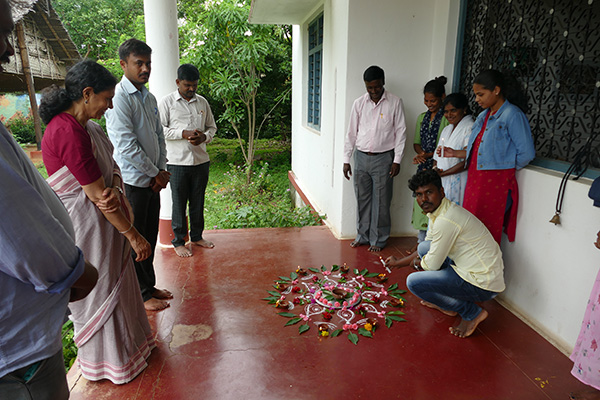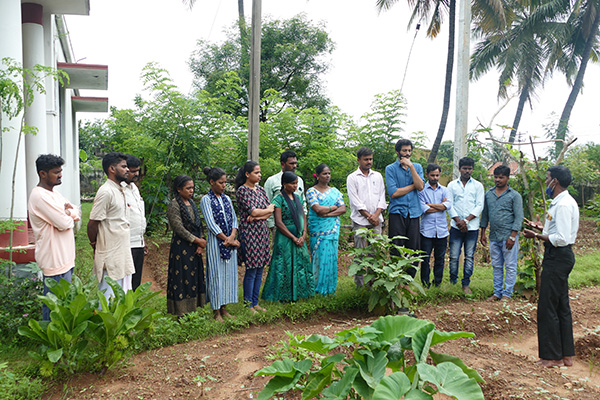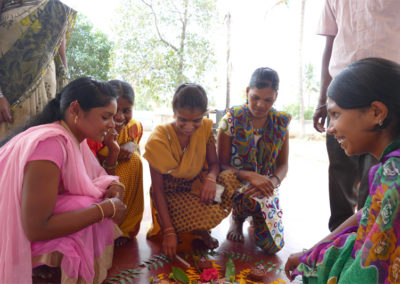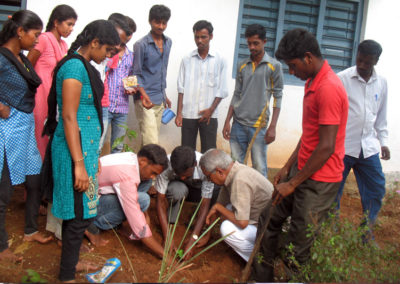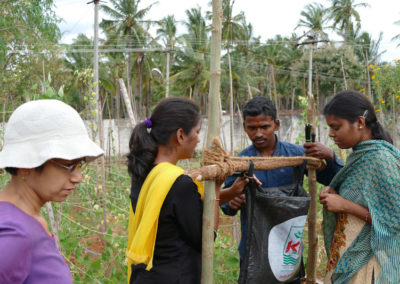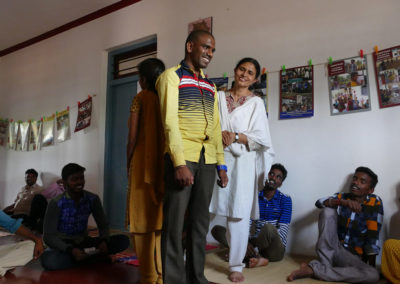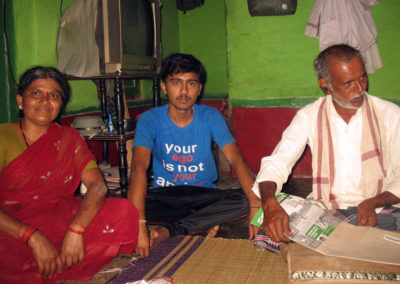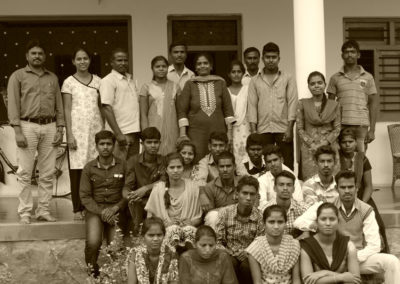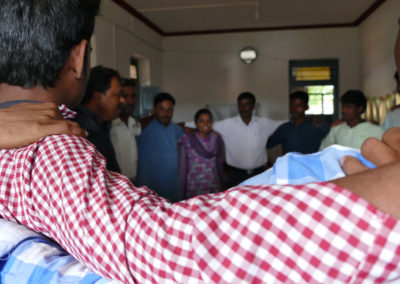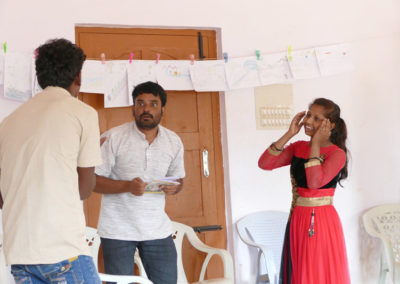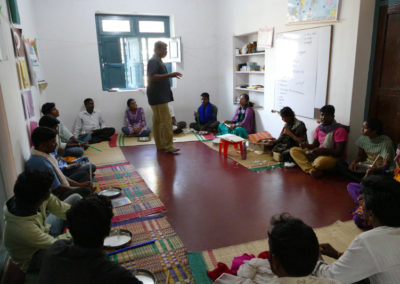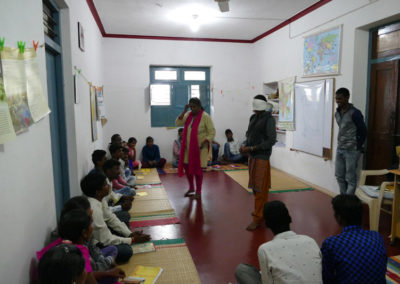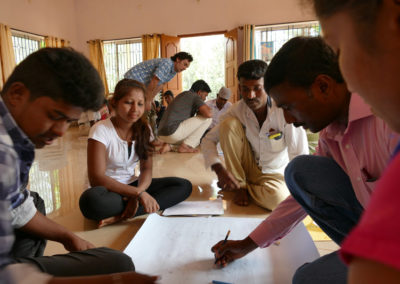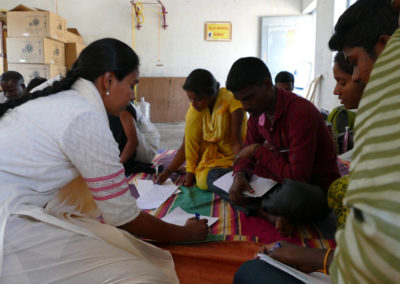INTEGRATED LEARNING PROGRAMME
SAMAGRAHA KALIKE KARYAKRAMAIn a fast disassembling rural world, how must rural youth be scaffolded?
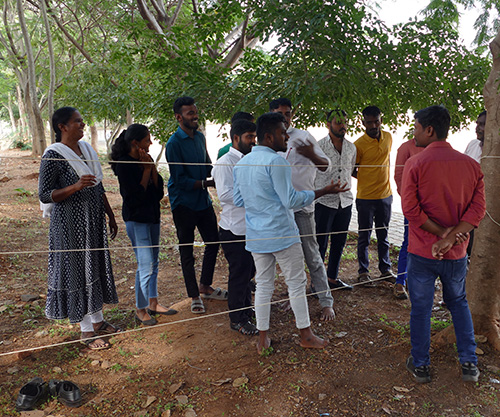
The “Integrated Learning Program’ began as a course spread over 7 months and included only youth from Chamarajanagar district. Since 2019, we have rethought the course in terms of the limited enrolment from youth in Chamarajanagar district and have now extended it to all youth across Karnataka. While the key content remains the same (sustainable agriculture and ecology, active citizenship, personal growth, and social issues), the format of the course has changed and will be delivered as short and topic specific modules over the coming years. The topics of the modules include that of sustainable agriculture, land restoration, climate change, democracy, active citizenship, personal growth and leadership skills, and local knowledge which includes value-addition to local produce. The pedagogies remain the same, that of: place-based education, critical thinking, and experiential learning.
Emphasis is placed on developing self-confidence, communication and leadership skills through performing arts. The pedagogical processes include an emphasis on experiential learning using the immediate social and physical world as texts. Reflexive exercises enable learners to question received ideas, overcome route learning habits, and to unlearn many ideas and perspectives.
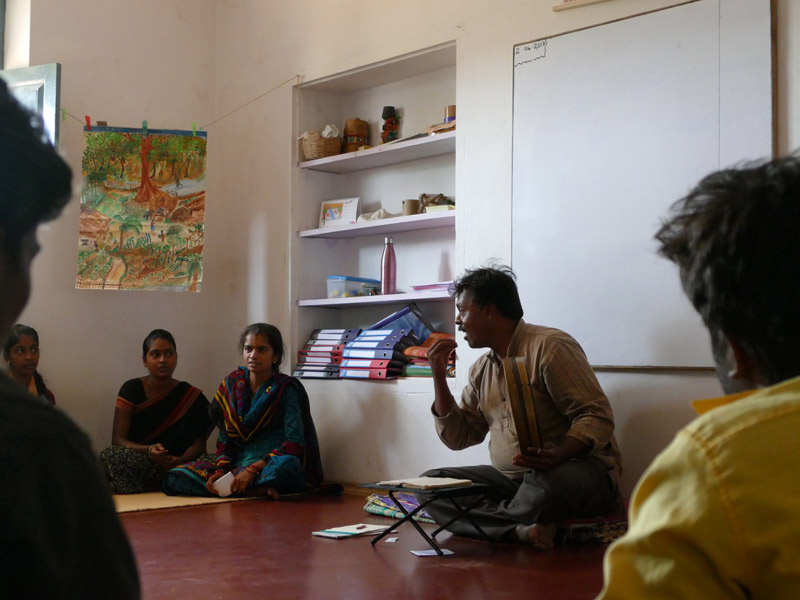
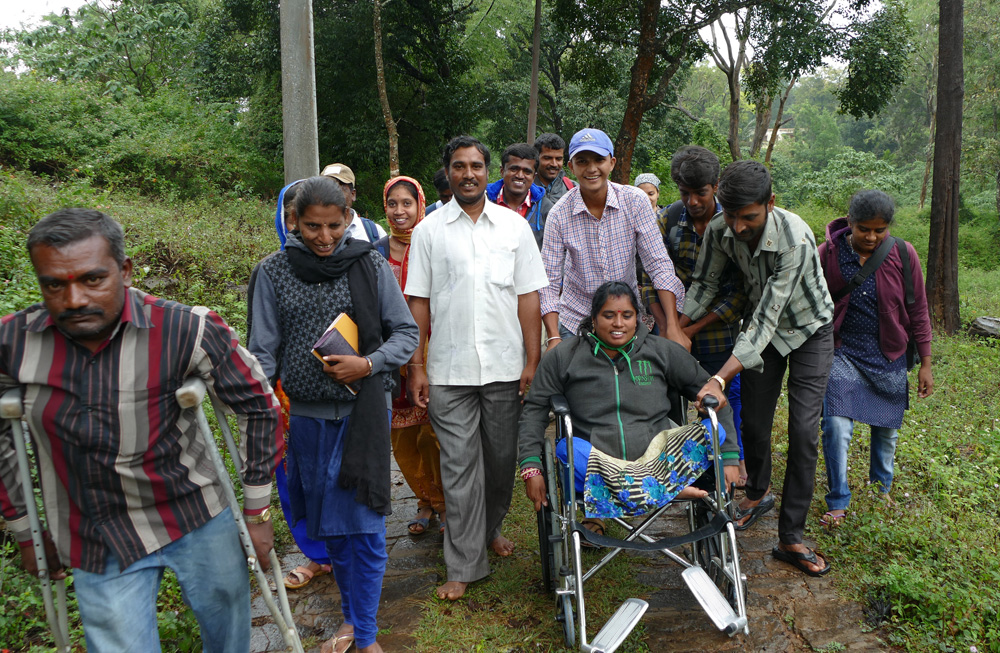
The Sixth batch of youth learners joined the course in July and completed it in December 2018. This lovely and enthusiastic batch included youth from two other districts. Plans are to develop the ILP into a residential programme and to include more youth from other districts. Most of the alumni are involved in rural and agricultural activities.
A comprehensive learning programme for rural youth requires pedagogies that integrate issues of sustainability with the abilities to engage with multiple knowledge forms, technologies, capital , citizenship, society, and labour.
Eight batches of the course have been completed.
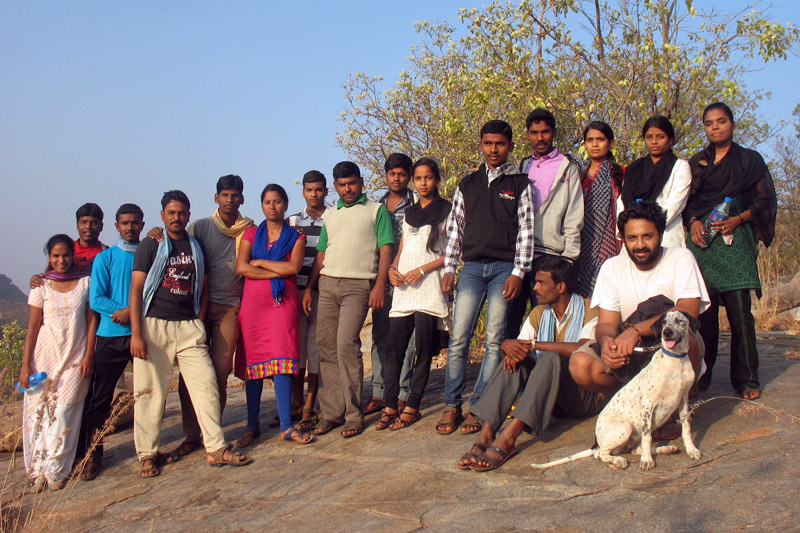
“Hesitation and fear have gone. Self-confidence has grown. It has been possible to develop characteristics of friendliness and co-operation.”
“Intellectual abilities to question, think about new issues, and to understand have been developed.”
“In school, learning was for marks. Learning about our lives was not possible. I had no opportunity to share the hardships I had experienced during three years of working after college. At that time life was only for money. But here (samagraha kalike) I have learnt what I did not learn in school and college. It has taught me about life and its aims.”
“When I shared what I had learnt during the programme, with my family and friends, they were very surprised and happy.”
“Instead of going to unseen places and working there, it is better to work in one’s own village”
“I learnt that instead of text-book learning, we can learn more about changing our lives through non-book learning”
“I now realise all the hardwork that women in the family do. I have learnt to bring water and I now help in the house”
“I eagerly await going to the ILP classes…just like waiting for the television serial”
Several parents expressed views about the impact of the ILP on their children:
“I was concerned about him wandering around…now I see that he is focussing on land and showing some interest in cultivation work”
“ She was a shy and introverted girl and is now talking to people including strangers”
“She went to the ration shop and asked why we were not getting rations. They had to give us our books and now we get coupon (ration) rice. This was possible only because she has gone to the course in Nagavalli.”
ILP IN MODULAR FORMAT
In 2023, we decided to have the ILP in a modular format so that different segments of the program could cater to different groups. Between July 2023 and February 2024, we conducted four key modules: Ecology and Agriculture (21 days); Climate Change (6 days); Democracy and Leadership (6 days); and on Land Restoration and Conservation (6 days). A special one-day module on democracy was held for Soliga youth from the Hanur area. In total, between all these programs, we had 130 youth participate. The sessions on democracy and leadership conducted in Mysuru (at the KSOU premises with Mallige as key organizing anchor) and the one at Mangaluru (at St.Fatima’s Retreat House) were special in that youth with very diverse backgrounds were able to participate in these sessions. We were also supported by key resource persons from these regions.
‘GRAAM SETHU’ or “Village Bridge’ program is an off-shoot from the ILP and was meant to provide continued support and mentoring to the ILP alumni. Geeta and Yathish, with guidance from Chitra and Prashanth continued to work on a range of issues in Yellachihalli and Kodihatti villages of Gubbi taluk, Tumkur. They not only continued to hold classes on environment in the local government schools but also deepened their activities with a group of children. Lending support to the children’s learning with evening support classes, working with them to conserve the tree saplings that they had planted, and introducing them to issues such as making organic compost, developing seed nurseries, and learning issues related to climate change were some of the additional activities. The children also upload short videos (in which they enact out various themes from their work) to a Youtube channel. Their interest and commitment to conserving local ecology was evident when they challenged the local electricity department’s decision to fell some of the trees that they had nurtured and had the department re-route the electricity lines and saved the trees. The team developed an anti-plastic drive and shared the information with several villages and the watermen also joined them. They also developed and enacted a street play on climate change and the need for resource conservation. Geeta and Yathish also supported the women from the two villages to get their job cards and to apply for MNREGA work during the 2023 drought.
In Kullur, Mahendra continued to work with the local youth by conducting evening classes for them and working with them in conserving local trees. In addition, he has been active in supporting the residents to claim benefits from the local panchayat. As a participant in the Assembly and Parliament election campaigns, he worked to get voter ids for many people and also engaged in discussions, campaigns and training. Mahendra received training in Bengaluru to develop social media messages and he contributed significantly to developing and disseminating social media messages during the election campaigns.
Three women, Rajeswari, Puttamma, and Sakamma, joined the Graam Sethu as catalysts for village-level democracy work. They not only mobilized people for discussions but also enabled women to get their job cards for MNREGA work and initiated home gardens. The five democracy catalysts from various parts of Karnataka continued their work on gathering data, engaging with discussions, and supporting people to get their voter ids and to go to the polling stations during the elections. They all also provided key information that helped a larger state-level network to develop an assessment of the Members of Parliament (17th Lok Sabha) from Karnataka.
ACKNOWLEDGMENT: Since 2020, Moonfrog Labs, Bengaluru, has generously supported the Integrated Learning Program through its CSR funds.
Democracy Workshop at Nagavalli: Feb 2023
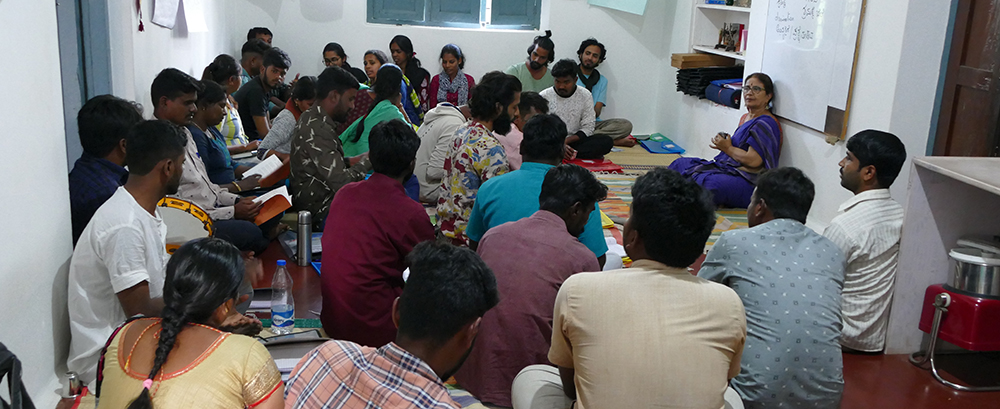
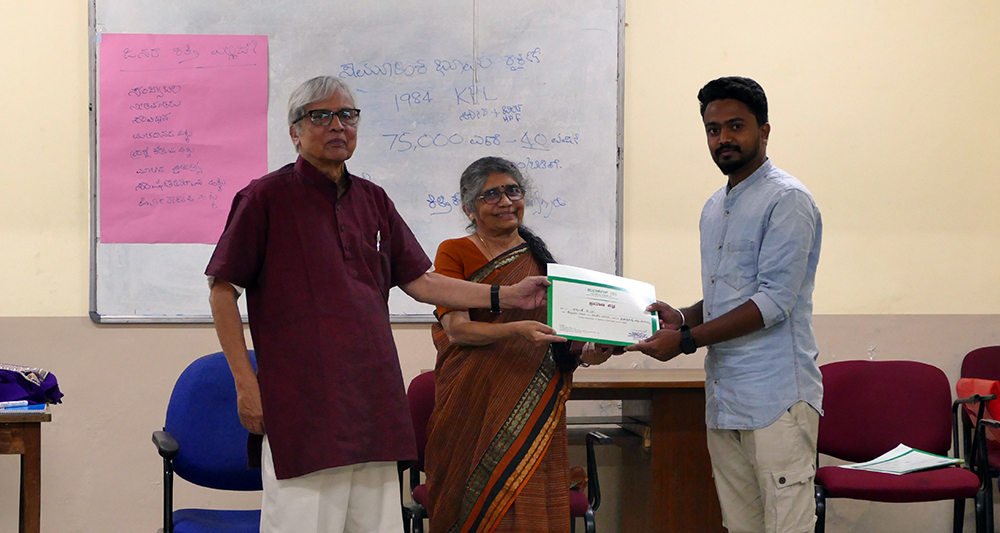
Dileep and Nileema Kamat as Resource Persons and Guests of Honour, March 2023.
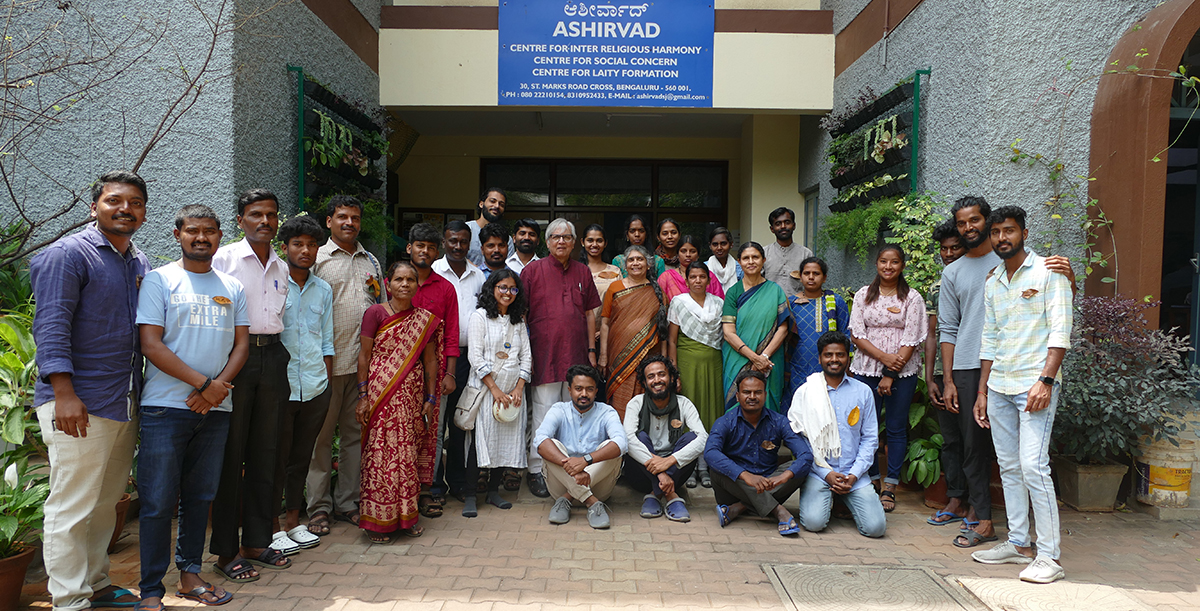
2022
